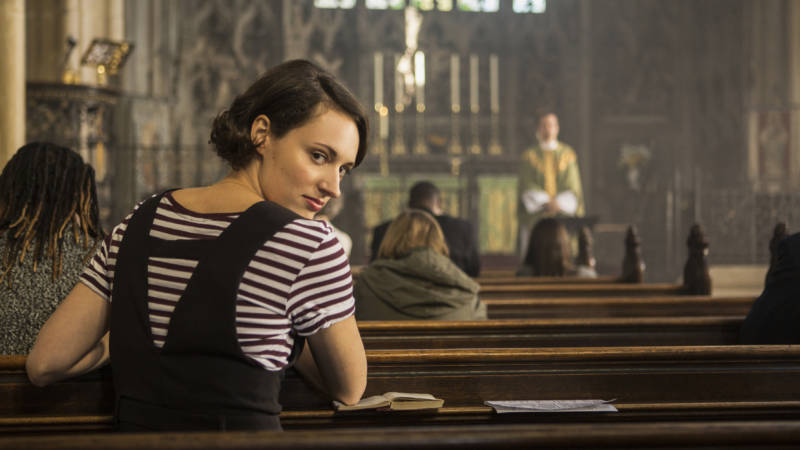The thing that sets Killing Eve apart from other thrillers is the dynamic between the two main characters. "This pull between the two of them was the thing that really excited me," she says. "I didn't feel like I'd seen that before."
Interview Highlights
On ending the TV series Fleabag after two seasons
To be honest, Terry, I feel like I've milked this character as far as I can take her! I feel like things should come to an end, and I feel with this particular character I owe her so much. And this whole process has been so wonderful. But I really do feel like when there's a story that is that intense that it's a good thing to end it, and it's healthy to end it and to know for myself, as well, that this is the end of this chapter.
On why she uses the device of looking at the camera (or speaking to the audience in a direct address in the stage version) in Fleabag
It allowed me to play with the idea of control of her own narrative. ... She's trying to convince you that she's fine and actually the relentlessness of being witnessed means eventually that has to break down, because she can't keep that up the whole time.
So I think at the beginning, the idea of having an audience watching you and watching your every move and being there for you so you can turn around and they'll laugh and they'll clap—at the beginning sounds quite fun, but actually in reality it's a nightmare, because you feel like you have to constantly perform to them. And this idea of this constant eye on her felt like it was the perfect pressure for her to then crack under, because she wasn't being honest and she wasn't being truthful. I think that her journey was to have the front eventually slide so we can see who she really is and what she's really hiding.
On Fleabag's obsession with the performance and drama of sex—and less about the feeling
I think that idea came from a lot of conversations I was having with friends of mine about what their relationship with sex was. Often with the women I'd speak to, when I was really boiling it down with them, and through my own experiences as well, it felt like the most important part of it was ... the feeling of being desired. It was kind of sad how many women I spoke to felt like that, and that I could relate to that and I felt like that certainly through my 20s. I thought that that would be a really quick way to key into this character.
On balancing comedy and drama in Killing Eve
I wanted both characters to be charming. I found it very hard not to write jokes. I also think that the comedy and drama actually live very closely with each other and complement each other. So I wanted these characters to be witty. ... Villanelle [the killer] just messes with people and it cracks her up and she's very irreverent. I thought that comedy lent itself to that very, very easily. I know that that's the quickest way to make people love a character, is if the character makes them laugh, and then they can murder somebody and you'll go, "Oh, it's okay because she's funny!"
On how Waller-Bridge wanted to be a boy when she was a kid and called herself Alex
I just thought [boys] just had more fun. I just wanted to be out climbing the trees and wearing comfortable clothes. ... And a lot of my friends were really into the dresses and the dolls and all that kind of stuff; it just wasn't my bag and it just seemed like you had to choose one or the other at that time. ... I honestly felt limited as a girl when I was younger because the options of play were limiting. [I was a more] outdoorsy kind of rough-and-tumble kind of kid.
Lauren Krenzel and Thea Chaloner produced and edited this interview for broadcast. Bridget Bentz, Molly Seavy-Nesper and Beth Novey adapted it for the Web.
Copyright 2019 Fresh Air. To see more, visit Fresh Air.9(MDAxOTAwOTE4MDEyMTkxMDAzNjczZDljZA004))

9(MDAxOTAwOTE4MDEyMTkxMDAzNjczZDljZA004))

